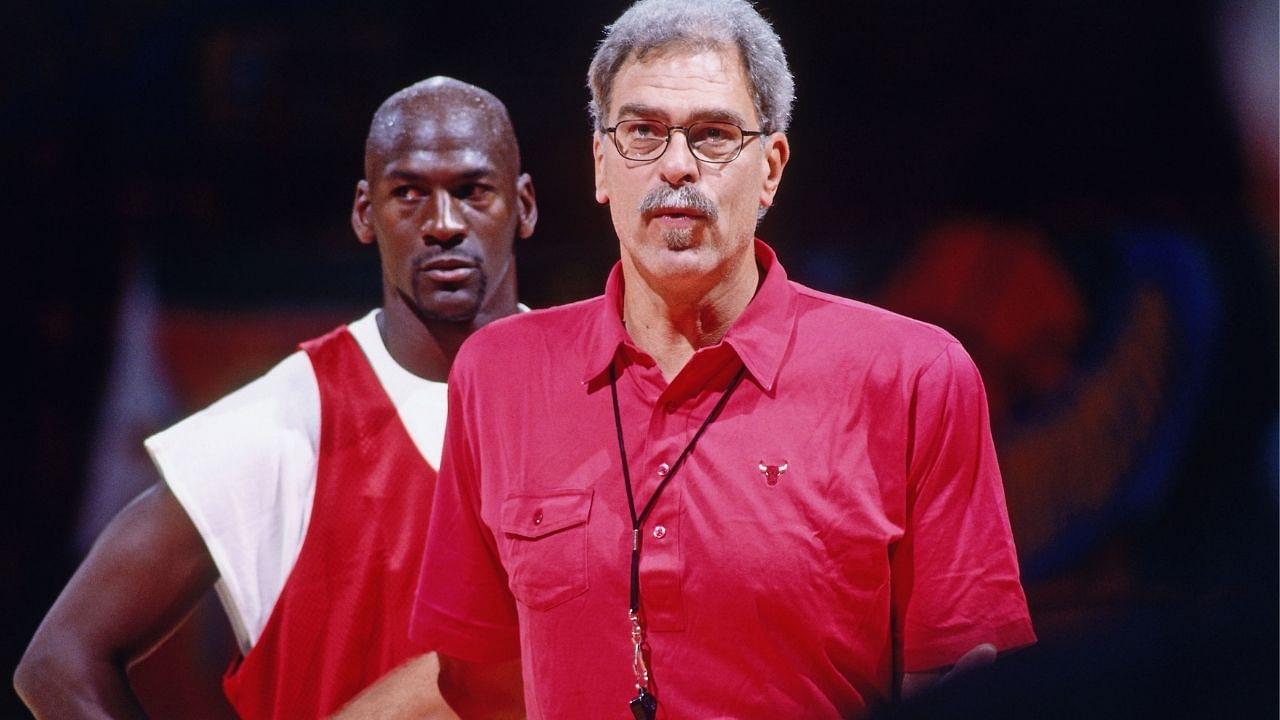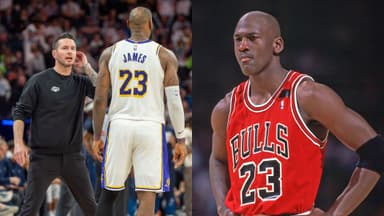Michael Jordan needed to realize that he had to trust his teammates much more often if he wanted championships, according to Phil Jackson.
Advertisement
Michael Jordan burst onto the scene as a 28+ point per game scorer for the Chicago Bulls while being a rookie in the NBA. The Bulls, at the time, weren’t exactly known for their championship aspirations and with MJ on board, the squad was looking at a bright future ahead.
His first 6 years in the league were unfortunately marred with postseason disappointment. Getting swept by the Boston Celtics in the first round and losing to the Detroit Pistons in brutally physical series felt like the norm for the Chicago Bulls.
Jordan’s early years in the league under Doug Collins had him accustomed to an offense that was centered around him. However, with Phil Jackson having come from the Tex Winter ‘school of tutelage’, the Bulls adopted a more free-flowing offense.
Sure, Michael Jordan had the green light and was the focal point of an offense but him going down the court on offense on 5 straight possessions, trying to score by himself was a thing of the past with the ‘Zen Master’ in Chi-Town.
Phil Jackson elaborated on how Michael Jordan eventually began winning after trusting his teammates.
Michael’s incessant need to ‘be the man’ eventually faded after he realized that guys like John Paxton, Steve Kerr, and the guys down-low were all capable of being productive if put in the right position. The gravity that Jordan possessed upon driving down the lane opened up things for guys on the wing and that’s where he started.
While on air during the 2002-03 season, Phil Jackson talked about his previous stint with the Chicago Bulls and what eventually changed with Michael Jordan, leading to 6 titles in a single decade.
“Michael had his opportunities early on in his career. The first 4-5 years in the league he used to shoot 35, 45 times, score 40 or 50 points. He found that no matter how great he played, on a lot of nights, he couldn’t overcome another team.”
“It was a team game and the supporting act had to come from 5 guys and he had to share the ball and he had to find a way to incorporate his great individual game in a team game.”








